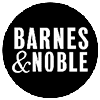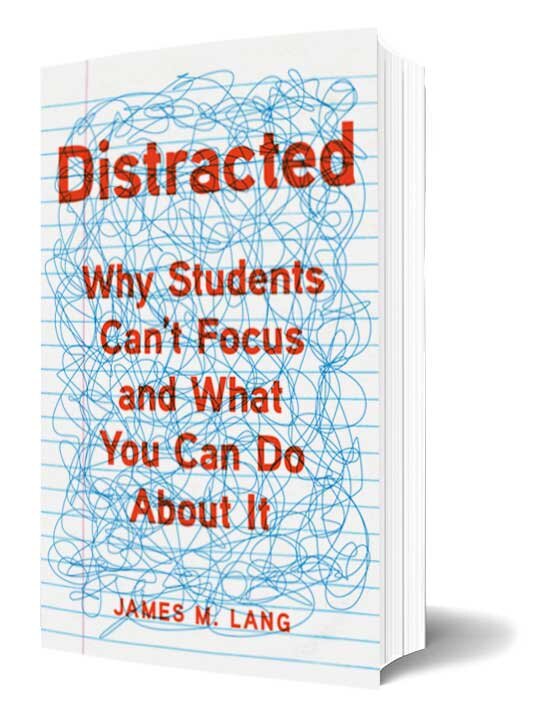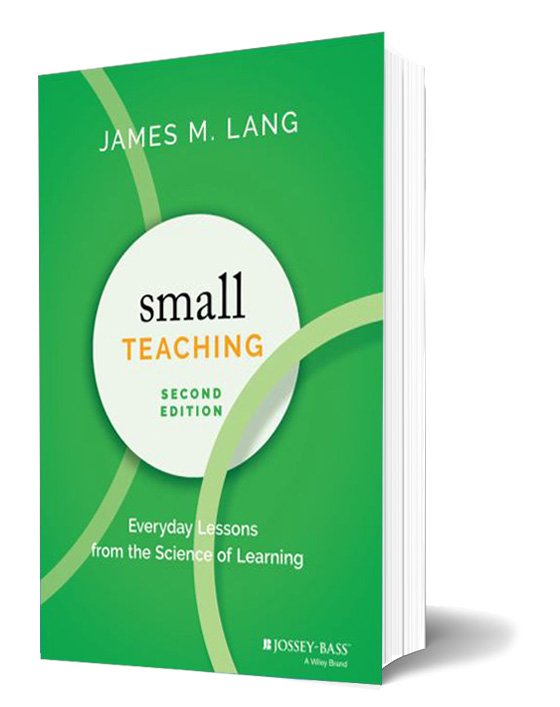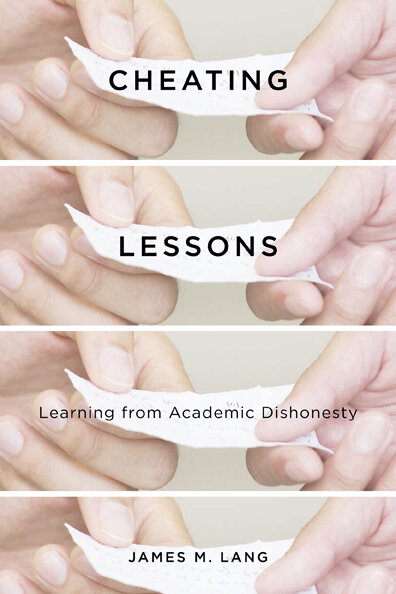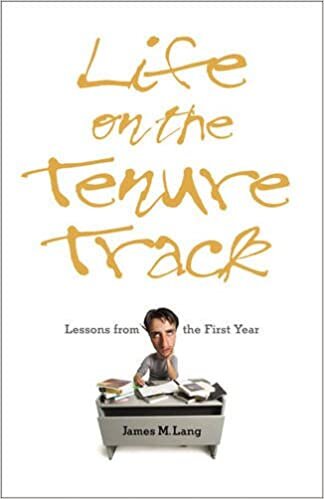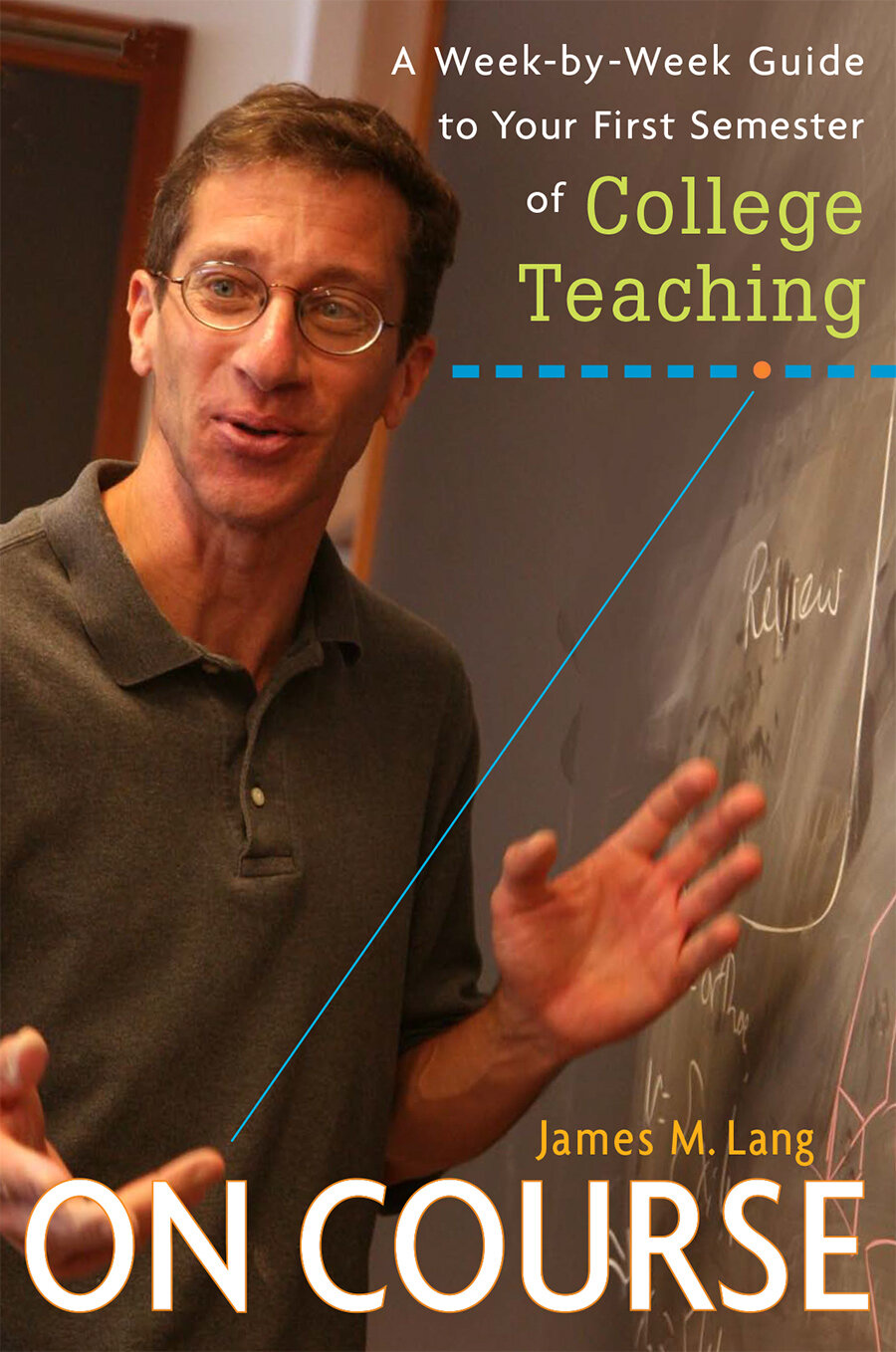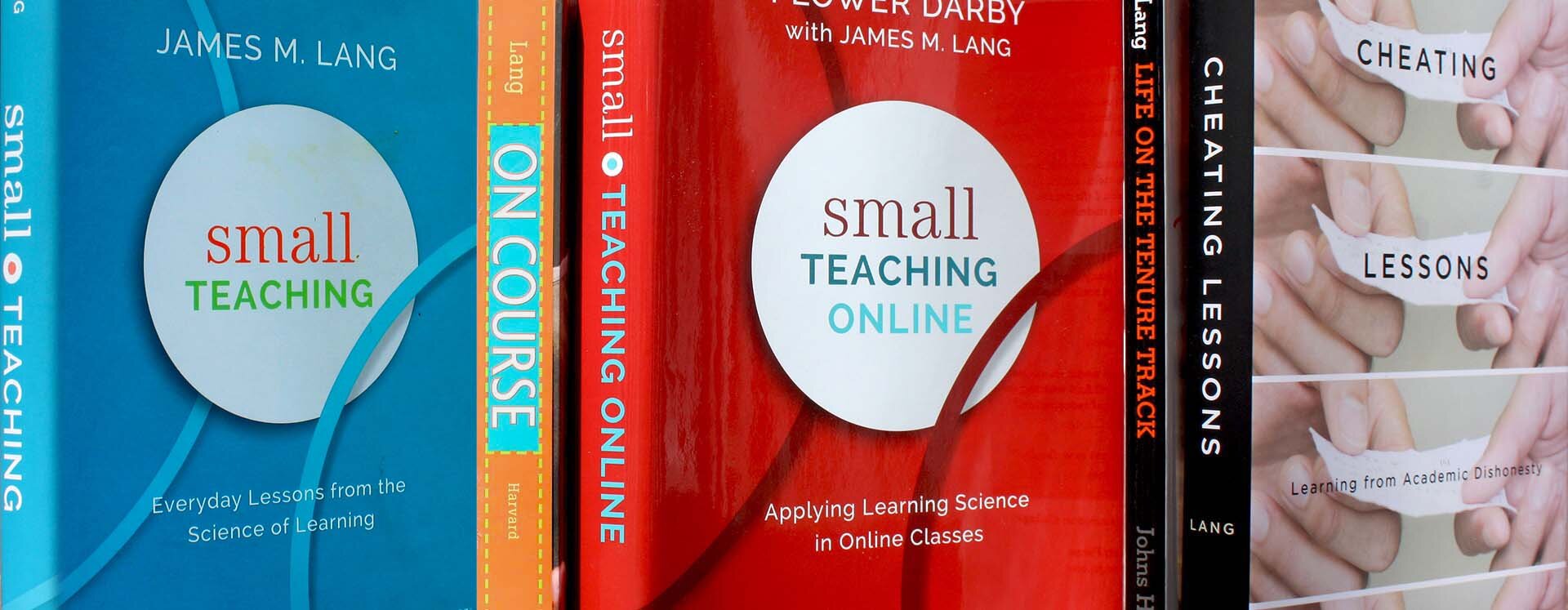
Books
Available Now: Order Today
Write Like You Teach
Taking Your Classroom Skills to a Bigger Audience
This engaging guide offers practical advice to scholars and educators on how to utilize their existing classroom skills to become more effective public writers.
After years spent cultivating their expertise and passion for a subject, scholars are uniquely positioned to write great books. Yet, accustomed to writing for an audience of their peers, many scholars find it challenging to adapt their writing to a style that is accessible and engaging to the general public. But what many academics frequently overlook is that they are regularly called on to pitch their research to a general audience: their undergraduates.
In Write Like You Teach, James M. Lang distills the elements of good classroom teaching into guidelines for writing for a general audience. He encourages authors to take an interest in how their readers learn, and to embrace exploration, experimentation, and creativity when writing books, just as they might in the classroom. Lang asks his readers to consider the questions that all great teachers ask themselves: How will I get the attention of my students? How do I make them curious about my subject? What will I do at the end of the class to remind students about my key messages, and leave them wanting to learn more about my fascinating subject?
Write Like You Teach includes examples from successful writers and useful anecdotes from Lang’s own classroom and writing career. Each chapter ends with writing prompts to help readers practice their newly acquired skills, and an appendix provides additional advice on publishing and promoting one’s work. Teachers who follow Lang’s suggestions will find new ways to connect with their readers—and like any good student, they will never approach writing the same way again.
Press and Reviews of Distracted
Distracted
Why Students Can’t Focus and What You Can Do About It
Educators at all levels fret today about the digital distractions that are interfering with the learning of their students. For teachers of younger students, those fears tip into the clinical: Are smart phones re-wiring their brains? For college faculty, the fears turn easily into frustration: Why aren’t students paying attention to me like they used to? Distracted begins with a quick tour through the history and biology of attention in order to help teachers understand that distraction has always plagued our efforts to focus and learn, from the ancient Greek philosophers to the schoolrooms of 19th-century England. Following this grounding in attention history and the biology of distraction, the book offers multiple pathways toward better attention in college and high school classrooms, from basic recommendations about the use of the physical space to more complex strategies for awakening the attention of students to the wonders of our course content.
“This book will change how you think about education. Distracted takes us on a phenomenal ride into a much misunderstood aspect of human learning and finally into the refreshing light that science, literature, philosophy, and history bring. Anyone who cares about learning — their own or anyone else’s — should take this journey.”
Distracted argues that the debates we are having about the distracting power of our devices point us in the wrong direction. Rather than thinking about how to ban distractions from our easily distractible minds—since our minds have always been easily distractible—we should focus our work on creating learning environments that support and sustain attention.
The book draws deeply from research in education and the science of attention to support its arguments, as well as from classroom observations and the works of poets and philosophers alike. The book’s accessible writing style and diverse and unexpected array of sources will help teachers think about the challenge of attention in creative ways, and spark entirely new directions for research and conversation about the role of attention and distraction in the education of our students.
“Distracted is a must-read for every classroom teacher. In Distracted, Lang makes a compelling argument that ‘attention is an achievement’ and that we should be cultivating ‘attention renewal’ rather than preventing distractions. Lang presents practical classroom activities for fostering curiosity and community–with the research to back them up. Candid insights on effective laptop policies, inviting students into the conversation, and the role of assessments make Distracted an invaluable resource that will change how you–and your students–think about learning.”
Small Teaching
Everyday Lessons from the Science of Learning
The Small Teaching movement began in 2016, when this unassuming book made a simple argument to college faculty: a growing body of research on human learning was pointing us to small, manageable changes we could make to our teaching that would have a significant positive impact on student learning. Since its publication in 2016, higher education faculty around the world have embraced its message of empowerment and hope, and used its theoretically grounded, highly practical recommendations to spark ongoing change for their students. Although the book was written with an audience of college faculty in mind, it has been embraced by secondary educators as well, especially those interested in preparing their students to succeed in higher education.
“The notion that amazing teaching can come as a result of making small, research-based changes seems simple, but it has the potential to empower many in higher education. James Lang has done us all a great service by providing strategies that allow us to be more efficient and effective in the classroom without overhauling our entire approach to teaching.”
The book makes its case for small teaching changes by introducing nine learning strategies that have been demonstrated as highly effective for college and secondary students in the research literature. Each chapter introduces one of those strategies with an engaging, personal narrative or example from the author’s life or classroom; offers an easy-to-read theoretical overview of its mechanics; and then provides multiple practical examples of how that principle could be implemented in practical, easy-to-implement strategies for course design and classroom practice.
“James Lang’s Small Teaching manages to distill volumes of educational research into practical strategies that can be put to use immediately, without having to remake your whole course. I expect I’ll be seeing well-thumbed copies on professors’ bookshelves for years to come.”
Small Teaching Online
The COVID-19 pandemic has transformed higher education, and created an unexpected surge in demand for new online courses. Fortunately, James Lang and Flower Darby have teamed up to apply the powerful framework of Lang’s Small Teaching to online teaching and learning. This practical guide features the same accessible writing and research-based strategies that made the original Small Teaching a bestselling resource for higher education. Instructors will find in here a wealth of ready resources for online course design, day-to-day management of their online courses, and communication with their students. Most importantly, Small Teaching Online provides resources and advice for building community in your online courses, enhancing the online course experience for both instructors and students.
“Darby and Lang extend the powerful Small Teaching paradigm successfully to the online teaching and learning environment. Faculty who are new to online teaching are especially well-served with this superb introduction to research-based incremental strategies.”
Cheating Lessons
Drawing on an array of findings from cognitive theory, Cheating Lessons analyzes the specific, often hidden features of course design and daily classroom practice that create opportunities for cheating. Courses that set the stakes of performance very high, that rely on single assessment mechanisms like multiple-choice tests, that have arbitrary grading criteria: these are the kinds of conditions that breed cheating. In this book, James Lang seeks to empower teachers to create more effective learning environments that foster intrinsic motivation, promote mastery, and instill the sense of self-efficacy that students need for deep learning. Although cheating is a persistent problem, the prognosis is not dire. The good news is that strategies which reduce cheating also improve student performance overall. Instructors who learn to curb academic dishonesty will have done more than solve a course management problem—they will have become better educators all around.
“This lively book combines a review of key studies of cheating, inspiring examples of active student efforts to stop academic dishonesty, and useful guidelines for how faculty and institutions can respond when it does occur.”
Life on the Tenure Track
In this fast-paced and lively account, James Lang asks—and mostly answers—the questions that confront every new faculty member as well as those who dream of becoming new faculty members: Will my students like me? Will my teaching schedule allow me time to do research and write? Do I really want to spend the rest of my life in this profession? Is anyone awake in the back row? Lang narrates the story of his first year on the tenure track with wit and wisdom, detailing his moments of confusion, frustration, and even elation—in the classroom, at his writing desk, during his office hours, in departmental meetings—as well as his insights into the lives and working conditions of faculty in higher education today. Engaging and accessible, Life on the Tenure Track will delight and enlighten faculty, graduate students, and administrators alike.
“A beautifully written book, part memoir, part meditation, part user’s manual―all the parts held together by the personality and reflections of the author who is by turns exuberant, anxious, triumphant, rueful, and always immensely appealing. Anyone who has ever taught will find waiting on the pages of this book the shock, and pleasure, of recognition.”
On Course
Practical and lively, On Course is full of experience-tested, research-based advice for graduate students and new teaching faculty. It provides a range of innovative and traditional strategies that work well without requiring extensive preparation or long grading sessions when you’re trying to meet your own demanding research and service requirements. What do you put on the syllabus? How do you balance lectures with group assignments or discussions—and how do you get a dialogue going when the students won’t participate? What grading system is fairest and most efficient for your class? Should you post lecture notes on a website? How do you prevent cheating, and what do you do if it occurs? How can you help the student with serious personal problems without becoming overly involved? Packed with anecdotes and concrete suggestions, this book will keep both inexperienced and veteran teachers on course as they navigate the calms and storms of classroom life.
“James Lang’s On Course is a marvelous book, full of wisdom, wide-ranging and well-synthesized research, and honest advice about what to do, what not to do, and how to get yourself out of many a pickle through knowledge, cleverness, and courage—all qualities that are in the book intself. The book clarifies, demystifies, and inspires.”


